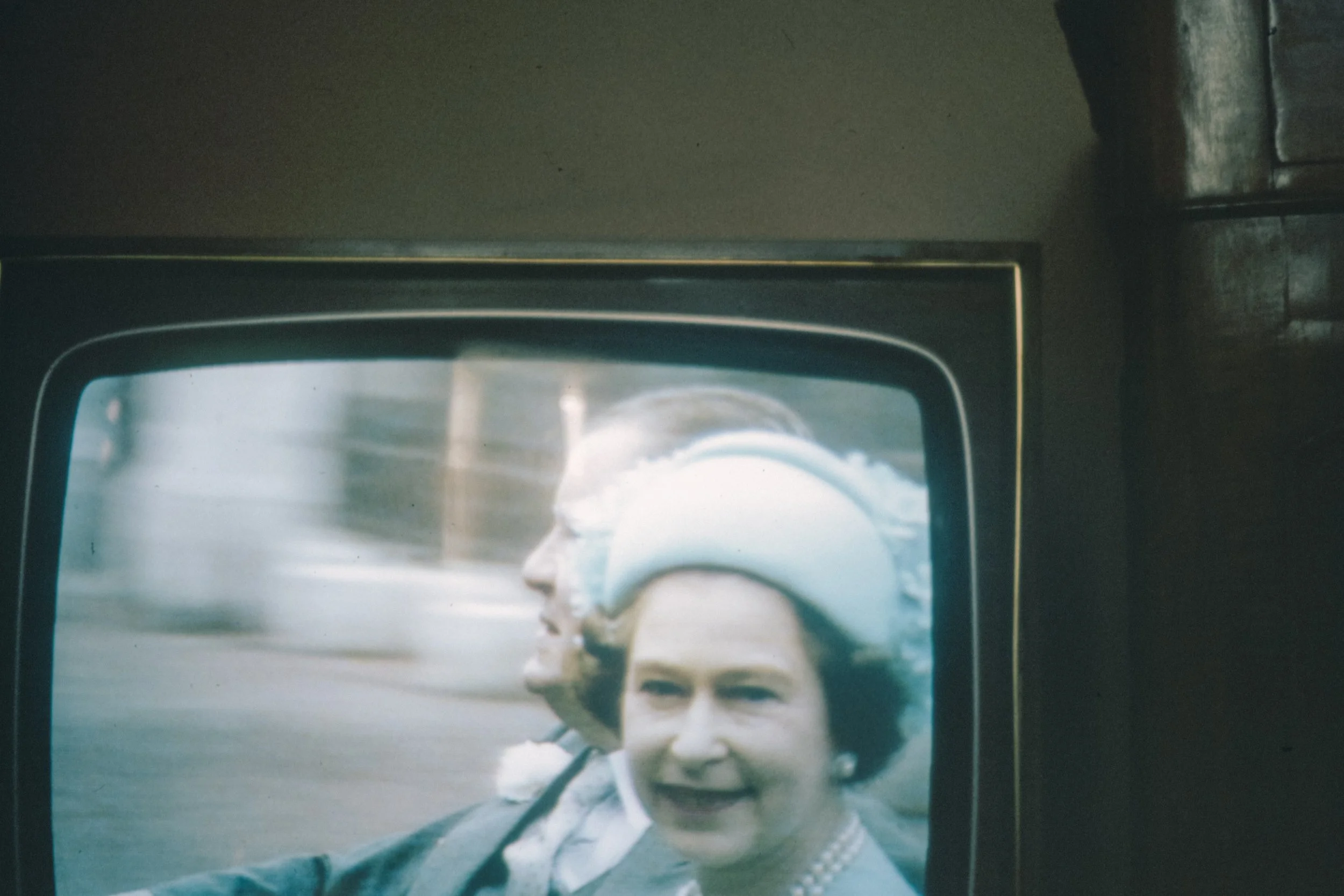A Royal Send-Off
One of the stranger aspects of living in Germany is the disconnect between the many political and social earthquakes that happen all too regularly in Britain, and my life here. The slow reveal of events last Friday were no different. One minute I was reading about the Royal Family congregating at Balmoral, the confusion and rumour among the journalists at Westminster, and the next I would look up and see Germans sitting in cafes, sipping coffee and chatting over generously sized slices of Käsekuchen. It was jarring, but also soothing. The world was still turning here, while in Britain, things were slowly grinding to halt. The death of Prince Philip had prepared most British people for what to expect, but the death of a monarch, well, that was always going to be different.
Whatever your thoughts on the monarchy, the death of the Queen is an event of deep historical importance. As more than a few have said over the last week, the Queen was a through line, a connecting point for generations of people in a country that doesn’t have many social and cultural symbols that connect people. I surely wasn’t the only Briton feeling the ground shifting beneath my feet, but I wasn’t prepared for how many Germans would feel the same way. Seconds after the official announcement, my wife’s phone rang. It was her mother, in a slight state of shock. Over the coming days I would discover that we weren’t the only ones to receive calls from parents and grandparents, all professing their surprise that the Queen was actually gone. As the historian Katja Hoyer has pointed out, the connection between the Queen and Germany runs far deeper than I appreciated.
Over the coming days I was asked numerous times how I felt about the news. This is quite normal now, for many friend and family, I’m their only British contact. In turn, my British friends and family have been asking me about the reaction in Germany. When I tell them that not much has changed, they either sound slightly disappointed or they sigh and declare that they wish they could be here instead. This seems to be the same reaction in Germany. The home pages of newspapers may not be draped in mournful black, but the various media responses have ranged from overbearing to nondescript. Some have reams of articles dedicated to every aspect of the Royal funeral, while others have it somewhere down the bottom of the page. Even Bild, the most reliable source of tabloid hackery, has concerned itself more with recent domestic political scandals.
That being said, many Germans are still fascinated by events in Britain. The reason being: Germany doesn’t do pomp and ceremony well, if at all. The ceremony afforded to former Chancellor Angela Merkel when she left office last year is the perfect example. A nighttime event, complete with the German military carrying burning torches. It seemed weirdly out of place in country that barely unfurls a flag outside major sporting events. Britain on the other hand lives for these moments, the colourful costumes, the pageantry, the strange archaic symbols few really understand.
One major difference in Germany is the amount of articles either referencing the reaction of former imperial colonies or ponderously discussing the likelihood of the monarchy being abolished. I’ve seen very few of these types of articles in the major media outlets of the UK. The mere mention of either topic is seen as deeply inflammatory in country which can barely handle people holding up blank placards in protest. The United Kingdom is far more fragile than people might assume, even more so with the passing of its only real point of connection.
That’s not to say that every British person is connected by their adoration for the monarch, actually in many respects the Germans and the British have this in common. Some people in Britain care deeply about the monarch, while others couldn’t care any less. I once had a discussion with a friend where he earnestly declared that he would “only go to war for the Queen, not for any politician”. This sounds hyperbolic, and maybe it was, but it expressed something of the strength of feeling that the Queen could, and still can, arouse people. However, for most I know, their only connection to the monarchy is that the Queen’s face is on the money they have to fork out in increasingly larger amounts to keep the bills paid and food on the table.
Yet, these divisions within Britain are being expurgated by the national media, angrily attacked online, and censored by police on the streets. As a result, the complexity of feeling surrounding the death of the monarch is far less well known in Germany, where the footage of the queue to see the Queen’s coffin seems to speak to a unified sense of national mourning. As has been pointed out, the reasons people are queuing for miles, with some even willing to queue 24hrs, are far more complex. There are those who want to mourn, those who feel obligated, and even more who just want to be part of this national moment. Some may feel the emotion, but as one person in the queue stated “It’s just nice to be a part of this…It’s exciting. I’m like a little kid.”
Why would someone consider queuing to see a coffin “exciting”? Without asking, we might never know, but I do understand the sentiment. Britain, unlike Germany, has few if any other national celebrations. There aren’t any Volksfests springing up across the country, and there is certainly no equivalent to Tag der Deutschen Einheit (German Reunification Day). All British national celebrations revolve around the monarch. The Queen wasn’t a symbol, she was THE symbol. The monarchy is an empty container that each British person fills with their own perceptions, be they positive or negative. The Royal Family can unify the country, but not always in admiration. In my experience, the unity of anger or disinterest can be just as powerful as that of reverence and respect.
This complexity is not always obvious to British people and, moreover, many would prefer not to think about it too hard. Britain isn’t a country that likes to share its difficult emotions too widely, better to just say nothing and keep on moving. It’s the British condition, to not remember too much, and if it has to remember, it prefers to remember only the good bits. As if to underline this tendency, on the day the Queen died, Prime Minister Liz Truss, said that she was the "the rock on which modern Britain was built” that “Britain is the great country it is today because of her”. Given the widening divisions between the rich and the poor, the vast increase of food bank use, the demonisation of people on benefits, the damage done to the NHS, the inhumane refugee policies, the open corruption within the very heart of government, these seemed like strange statements to make. It just goes to show how deep the British desire for only positives can run.
Often it seems that British people don’t actually have the language to express their own thoughts on the monarchy. They resort to generalisations about “service” or “duty”, without actually being able to pin down exactly what service or duty the royals perform. For many monarchists, it might be just that the Queen did the most British thing of all. As one commentator put it, the Queen “fulfilled her constitutional role without complaint for 70 years,”. The Queen didn’t complain, and apparently, neither should anyone else.
Image Credit
Photo by Jack Lucas Smith on Unsplash
Photo by Annie Spratt on Unsplash
Photo by Samuel Regan-Asante on Unsplash
Photo by Jonny Gios on Unsplash
Photo by Samuel Regan-Asante on Unsplash
Photo by Roberto Catarinicchia on Unsplash
Photo by Dwi Wahyu Pagau on Unsplash










